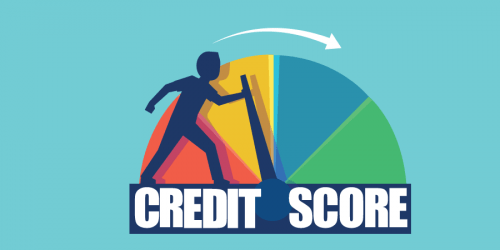
Starting a new business venture is always tough and stressful. Apart from having a five-year plan, a detailed vision and a predetermined goal, you are also tasked with taking care of funding, location, real estate and other related things. Most people that are starting a new business decide to go for a low-interest business loan that does not put much pressure on their bank balance and helps them keep their finances separate and organized. If you are in the market for a new business loan, then it is likely that you have come across the term CIBIL score.
The government of India and the RBI have licensed four different companies to measure the credit score of each individual residing in the country. The most popular company among all of the four is CIBIL. CIBIL determines your credit score based on your past transactions and credit history. This score enables banks to measure your eligibility for a loan and determine the correct value of interest on your loan. Let’s take a deeper look at the CIBIL score.
Also Read: How To Check Your Cibil Score Using Your Pan Card
What is CIBIL score?
Table of Contents
Credit Information Bureau Limited or CIBIL is an independent organization that is tasked with measuring the credit scores of individuals in India. This organization is among the four official bureaus that have been licensed by the Reserve Bank of India itself. It is one of the most widely used credit score companies in India and has over 600 million customers. Additionally, the company is also known to serve around 32 million businesses and is part of an American multinational group named TransUnion.
A CIBIL score is your credit score that is expressed in a three-digit numeric code in compliance with the bureau’s rating policy. The scale ranges from 300 to 900, where 900 is the maximum credit score that you can achieve. A CIBIL rating that is close to 900 will make it easier for you to get loans at a lower interest rate than someone who has a lower rating close to the 300 marks.
Also Read: Tips On Increasing Your Cibil Score By Using Your Credit Card
How is the CIBIL score calculated?
CIBIL uses in-house algorithms to determine your CIBIL score. These algorithms take into account your past credit history and credit report where numerous factors are taken into account, including the likes of debt repayment history, creditworthiness, credit history, income sources, credit cards and more. Ideally, a worthy CIBIL score is the result of 18 to 36 months of credit analysis where your credit usage is taken into account to provide you with a satisfactory CIBIL score.
How can you improve your credit history for a better CIBIL score?
Having a good CIBIL score can help ease your worries by making it much easier for you to borrow loans at a lower interest rate. On the other hand, if you have a low CIBIL score, then it could be very tough for you to get a loan on an urgent basis. Every bank in India requires you to file in your CIBIL score before your request for a loan can go any further.
Also Read: 5 Pro Recommendations To Fix A Poor Cibil Score
Ideally, a 700+ CIBIL score is considered excellent, and it can easily get your loans on an urgent basis. On the other hand, a score that is lower than 700 will make it much more difficult for you to acquire your loan. If you have a lower CIBIL score and are facing difficulties with your loan application, there are certain steps that you can take to improve your score. Let’s take a deeper look at each one of them:
Pay your dues on time
This is one of the factors that can have a serious impact on your CIBIL score. Missed deadlines, overdue credit card, lapsed EMIs and more can paint a bad credit history which will reflect in your CIBIL score. Make sure you set reminders for your regular payments and do not miss out on any of your EMIs. This way, you will be able to build up your credit history in compliance with good credit practices which will help you get a much better CIBIL score in the future.
Also Read: Is It True That You Can Boost Your Credit Score By Having A Credit Balance? Find Out Now.
Avoid excessive borrowing
Avoid submitting multiple applications and borrowing more than one loan in a given period. This could cause your credit history to dwindle and your credit report to crash down instantly.
Moreover, excessive borrowing could also raise red flags with potential banks that would otherwise be happy to provide you with a loan. Ideally, you should be applying for a new loan once your previous loans have been paid off.
Do not overborrow
There are two types of loans, secured and unsecured. Secured loans consist of home loans, auto loans, and business loans, while unsecured loans contain personal loans and credit cards. Having a healthy mix of the two can help improve your credit score while excessive borrowing of unsecured loans can severely impact your CIBIL score. The duration of repayment of your loans will also have a severe impact on your CIBIL score, and hence you should have a healthy mix of short and long tenures to compensate for this factor.
Also Read: The Increasing Significance Of Decoding Credit Scores — Why Pay Attention To Those Numbers?
Expect a loan within your limit
Your asking amount should be well within your budget. Take into account your income sources and assets to judge your capability of repaying your loan at the earliest. If you are shooting for the sky and asking for a higher amount than your income can help you repay, then it will give out the impression that you are in constant need of credit. This can negatively impact your CIBIL score, and hence you should apply for a loan that is well within your budget.
Also Read: Business Loans: When Credit Scores Don’t Matter
Indifi is a market leader when it comes to financial advice and key information points. If you are looking to improve your CIBIL score, then Indifi guides and forums are the perfect places for you to start your search.






